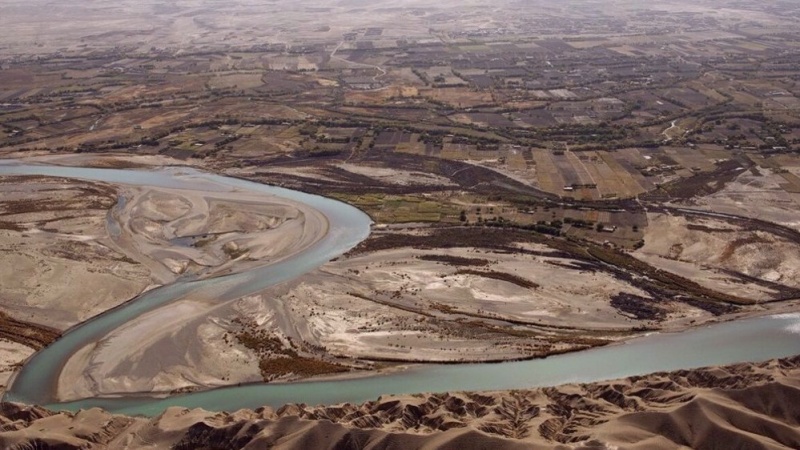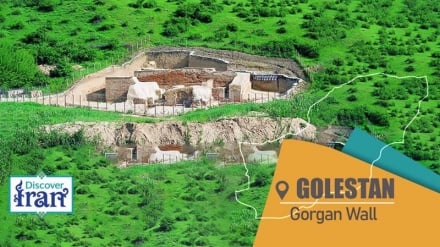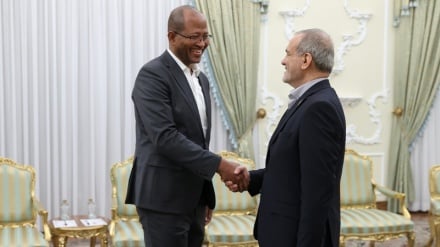Iran reiterates call on Taliban to secure water share in Hirmand River
Iranian Foreign Minister Hossein Amir-Abdollahian has reiterated the country's call to secure its water rights in the Hirmand River and its sources in neighboring Afghanistan.
Amir-Abdollahian on Saturday held a phone conversation with the Taliban-run government’s Foreign Minister Amir Khan Mottaqi.
A team of Iranian experts recently visited the Hirmand River for the first time.
The Iranian FM said such visits are taking place in accordance with the 1973 water-sharing treaty and would contribute to more transparency in the dispute over the river.
Amir-Abdollahian also told Mottaqi that Iran has always wished for the well-being of Afghanistan and its people, noting that the Islamic Republic has played host to a large number of Afghan refugees.
"Tehran emphasizes the [importance of] cooperation among all parties inside Afghanistan with the purpose of [promoting] stability, security and welfare of the Afghan people," the Iranian foreign minister said.
Mottaqi, for his part, said the fraternal relations between Tehran and Kabul are based on good neighborliness. He invited the Iranian Foreign Minister to visit Kabul and noted that efforts are underway to solve the existing problems between the two sides.
The Hirmand River, the longest watercourse in Afghanistan, rises in the Hindu Kush Mountains west of Kabul and flows in an arc southwest until it empties out into the Hamoun wetlands, located in Iran’s Sistan and Baluchestan Province.
Following more than a century of rift over Hirmand’s water supply, Iran and Afghanistan signed a treaty in 1973 to establish a means of regulating each country’s use of the river.
Iran should receive an annual share of 820 million cubic meters from Hirmand under the accord, which Afghanistan has grossly violated in letter and spirit, endangering the lives of many Iranians who rely on Hamoun wetlands for drinking water, agriculture, and fishing.
Afghanistan has also built dams on the river, constricting the water flow into Iran.
Iranian officials and lawmakers have time and again complained that Iran is not receiving its due share of water from the river.
Taliban ministers have blamed drought and technical issues for the low supply of water to Iran in the past months.
SS



